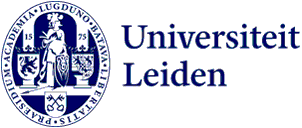
Minister wants to learn from dissertation on veteran policy
Theo van den Doel received his PhD in January for his research on veteran support. This showed that for long the government learned little from past missions. He has since presented his dissertation to the Lower House of Representatives, and the Minister for Defence, Kajsa Ollongren, has responded to his research.
What has happened with your dissertation since you received your PhD?
‘A number of defence journals covered it and in the runup to the annual Veterans’ Day the magazine for veterans looked extensively at the research. Various veteran organisations also posted the results of the research on their social media immediately after my PhD.
‘Soon after I graduated, the Permanent Parliamentary Committee for Defence asked the Minister for Defence for a reaction to the dissertation. This appeared last week in the Veterans’ Memorandum that is sent to parliament each year. The memorandum outlines the current status of veteran policy implementation.’
What was the Minister’s reaction in the Veterans’ Memorandum?
‘She supported the dissertations’ conclusions but said that the shortcomings from the past had all been remedied since the Veteran Act (2014) was passed. However, my dissertation shows that many improvements are still possible. Policy on paper doesn’t always match the practice. The Minister also acknowledged this in the memorandum with regard to the Uruzgan mission (Afghanistan, ed.). The picture painted by the Ministry of Defence was far too rosy. For political reasons, there was too much emphasis on rebuilding the country when the reality was a hard battle against the Taliban.’
You were invited to present your dissertation at the round table discussion for Veteran Support in the Lower House. What did you discuss?
‘At the round table the attendees give their views on the Veterans’ Memorandum. This serves as input for MPs in their debate with the Minister. As different representatives, such as the Ombudsperson for Veterans, gave their input it became clear that there is still room for improvement in the implementation. One of the points I made was that the Ministry for Defence does not act enough on its lessons learned. This relates not only to veteran support but in particular to the preparation and execution phase of a mission. Military personnel must be given clear and feasible orders. In addition, the selection of military personnel to deploy in violent conflicts could be improved.’

What did you think of the Minister’s reaction during last Monday’s debate on the Veterans’ Memorandum?
‘I was pleased with her reaction. The reaction in the memorandum itself was a bit flat, but she covered it in depth on Monday. She said that one of the most important lessons from the dissertation is that we should learn from past missions. I completely agree. She also mentioned the lack of government recognition for veterans. She more or less instructed the Veterans’ Institute to analyse the findings and to come up with recommendations on how this can be translated into policy. It was a good outcome and the research will lead to further action.’
Due to the selected cookie settings, we cannot show this video here.
Watch the video on the original website orHave you achieved the goal you had in mind with your dissertation?
‘Besides contributing to academia, it’s always nice when a dissertation on such a topic also finds its way to policymakers and politicians. The topic is relevant to society too. Veterans return to society after their mission and society plays an important role in their reception and recognition. A trade edition of the dissertation will be published by Walburg Pers (Veteranenzorg 1815-2015) in the autumn. This will make the subject accessible to a broad public, which is a nice way to link academia and society.’
Prime Minister Rutte apologised to Dutchbat III veterans last Saturday, 27 years after the fall of Srebrenica. How do you view this?
‘It’s too late. In my dissertation I describe how the same mistake was made with Dutchbat III as with the veterans of the Dutch East Indies. They had to wait until 1990 for recognition. Politicians and society no longer wanted to talk about it and acted as though it had never happened. The same was true for the Dutchbat III veterans. After Srebrenica, society, politicians and the Ministry of Defence found it difficult to deal with what had happened. Rather than recognition there was disregard. That has now been rectified. Better late than never.
‘The lesson is that such a ceremony has to be a collective event, which no one can ignore. Then the veterans can move on with their heads held high. They now know they have nothing to reproach themselves for. That had already been said, but this ceremony, broadcast live by NOS [public broadcaster, ed.] has been very important to many.’
Saturday is National Veterans’ Day. What does this day mean to you?
‘Veterans’ Day is society’s tribute to veterans. Research carried out each year by the Veterans’ Institute shows that veterans greatly appreciate it. As the initiator of Veterans’ Day that’s good to hear. I submitted a motion to that effect to the Lower House in 1996. This was ultimately translated into policy and resulted in the first Veterans’ Day in 2005. Before that there was a lack of recognition for veterans. It wasn’t considered a priority.’
What are you going to be doing on Veterans’ Day?
‘There’s a special cultural theatre in which authors who write about veterans can present their books. After the parade I will talk about my book, which will be published this autumn.’
Text: Tom Janssen
Photos: Marc de Haan
Theo van den Doel (1952) started his career at the Ministry of Defence and was subsequently an MP for the VVD for eight years. As defence spokesperson, he came up with the initiative for the annual National Veterans’ Day. He received his PhD from Leiden University in 2022 for his research on veteran policy in the Netherlands between 1945 and 2015.
